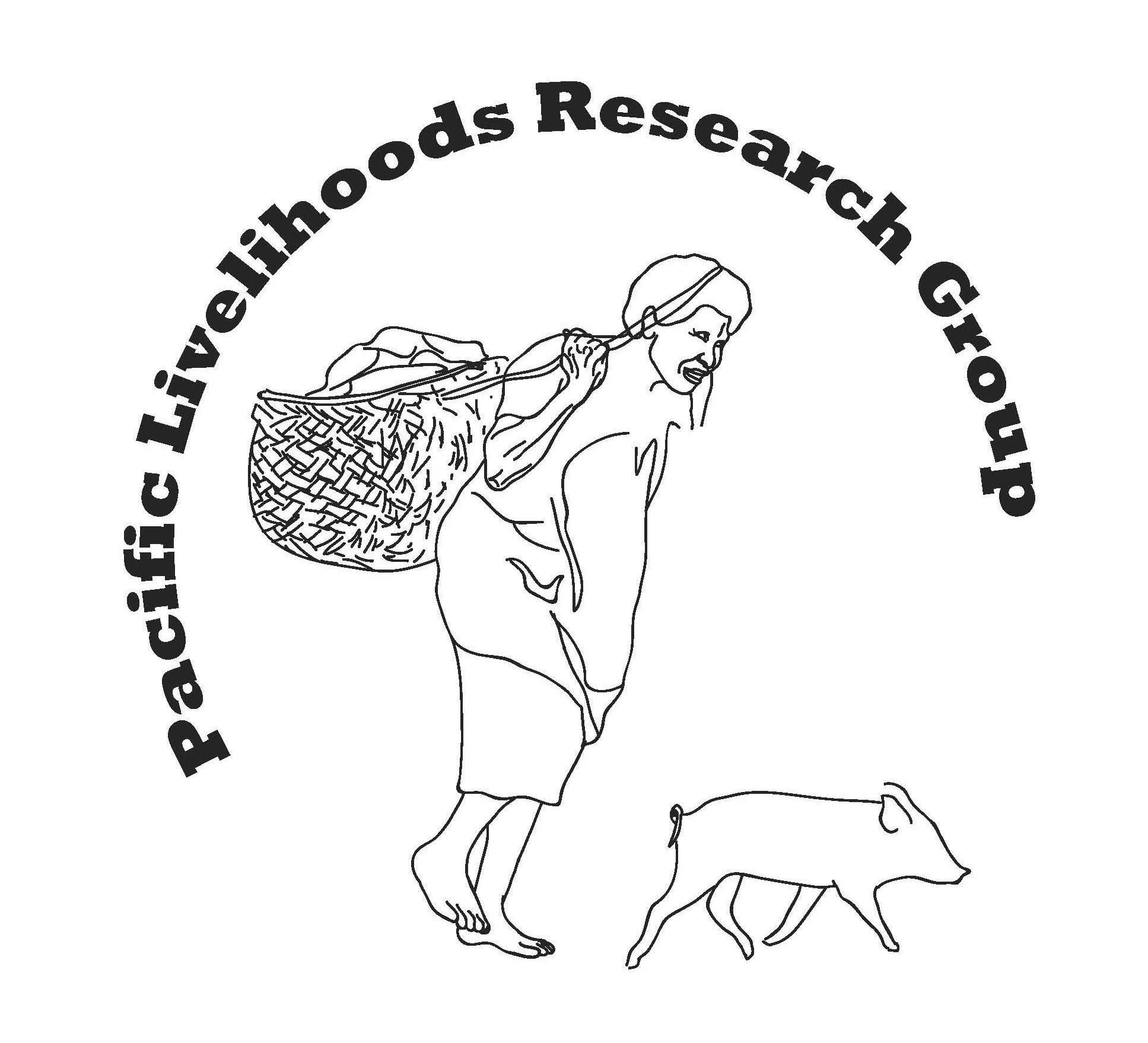
Agriculture is central to rural livelihoods in Papua New Guinea. Most rural households produce one or more export crops for sale, the most significant being coffee, oil palm, cocoa and coconuts. The great majority of rural households also earn money from the sale of fresh food and/or betel nut in local marketplaces.
The Pacific Livelihoods Research Group explores the social, cultural, economic and geographic factors which shape agricultural production and trading practices. In particular our research seeks to understand people’s market engagements in the context of their diverse livelihood activities which include subsistence agriculture, non-market and customary exchange, and often non-agricultural sources of income (e.g. small scale retailing, wage employment, remittances).

Market engagement is more intensive in particular locations, and amongst certain households, but in general livelihood strategies in Melanesia have favoured diversity over specialisation. People’s levels of participation also change in response to, for example, crop seasonality, price fluctuations, returns to labour, labour availability, household cash needs, and environmental shocks such as pests and climate changes. Rural households have, as a result, tended to adopt a low input, low output system of export cash cropping. This has contributed to the resilience of households, and has enabled households to participate in those non-market activities which are highly valued, however the viability of this system has been threatened by recent pest outbreaks.
The research focuses on:
- The interaction between export cash cropping and production for local marketplaces, in relation to land, labour and household resilience
- Socio-economic factors shaping smallholder farm management practices
- Changes to livelihoods in response to threats including land pressure and pest outbreaks
- The gendered dimensions of market engagement in relation to labour contributions and access to the financial returns
- Opportunities and constraints on women’s agricultural enterprise
- Livelihood practices of customary landholding and migrant groups in relation to access to land and labour availability
- Trading practices in marketplaces and the interactions between different market participants
Our research on export cash crops has involved close collaboration with industry bodies, research institutions, and the private sector, and has contributed to changes in policy. In collaboration with Mike Webb (CSIRO) our research has explored the interaction between production practices, nutrient profiles and crop yield.
Further Reading
(2019). Sharp, T. L. M., and Busse, M. Cash crops and markets. In: Hirsch, E., and Rollason, W. (eds) The Melanesian World. Abindon: Routledge, pp 194-222.
(2017). Curry, G., Koczberski, G., Webb, M., Pakatul, J., May, S., Kiup, E., Hamago, M., Aroga, L., Kenny, M., Kukhang, T., Tilden, G., Ryan, S. Improving Livelihoods of Smallholder Families through Increased Productivity of Coffee-based Farming Systems in the Highlands of PNG (Final Report). Canberra: ACIAR.
(2015). Curry, G. N., Koczberski, G., Lummani, J., Nailina, R., Peter, E., McNally, G., and Kuaimba, O. A bridge too far? Socio-cultural constraints on the adaptation responses of smallholders to a devastating pest outbreak in cocoa. Global Environmental Change 35, pp 1–11.
(2013). Sharp, T. Baias, bisnis, and betel nut: The place of traders in the making of a Melanesian market. Research in Economic Anthropology 33, pp 227-256.
(2007). Curry, G., Koczberski, G., Omuru, E., and Nailina, R. Farming or Foraging? Smallholder Cocoa Production Strategies in Papua New Guinea. Perth: Black Swan Press.
